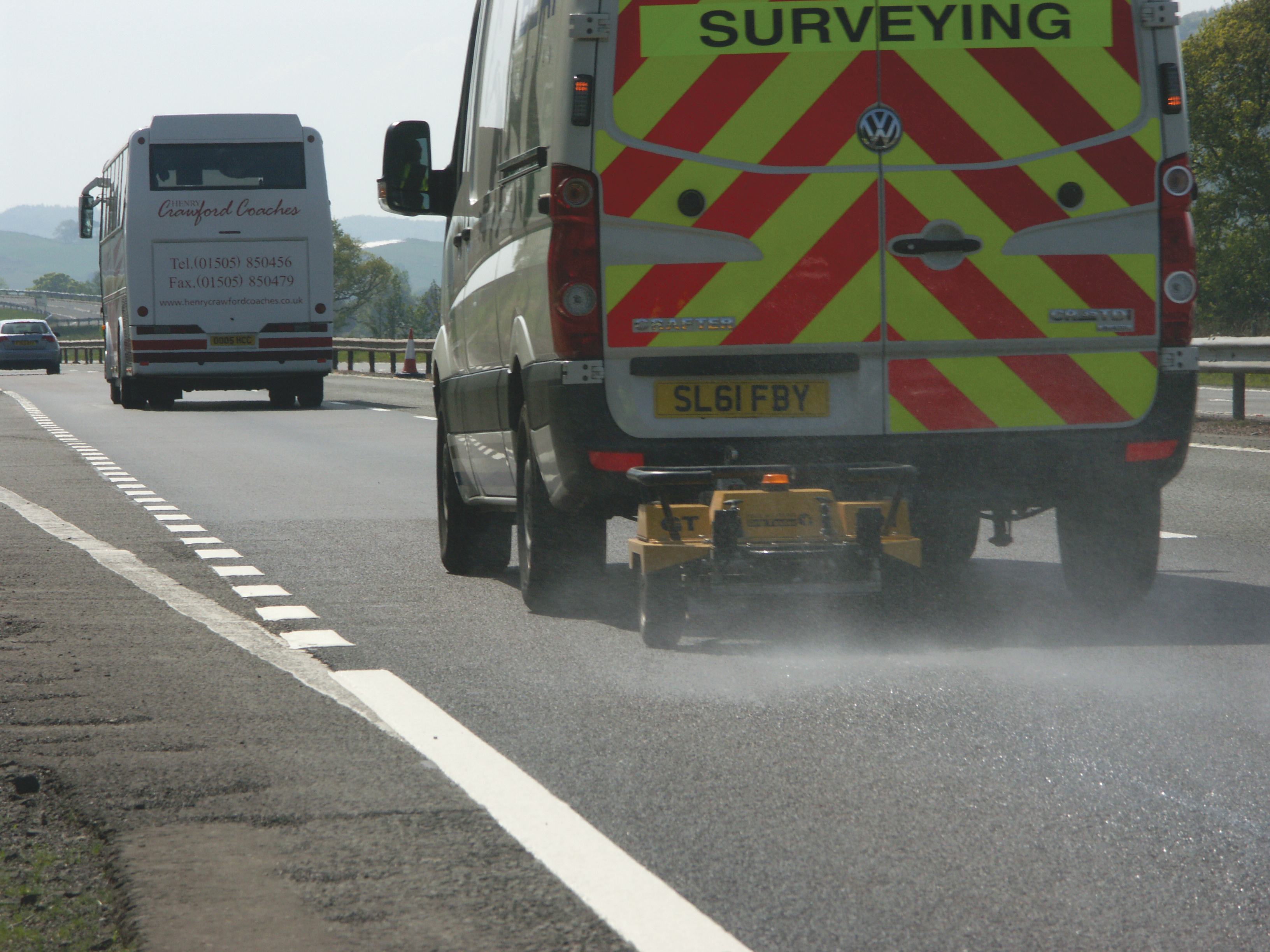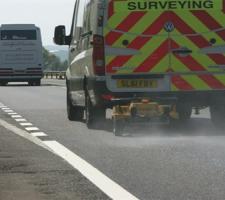
Asphalt made partly from recycled waste tyres has been successfully used on a road in Scotland
As supplies of raw materials are not finite, breathing new life into old materials through recycling is becoming big business.
Most materials can be recycled, and the first major UK trial of new asphalt made partly from recycled waste tyres has been successfully completed on behalf of
A short stretch of the A90 dual carriageway between Perth and Dundee was resurfaced with the “revolutionary material” and a recently-completed grip test on the new surface has now confirmed its viability.
This stretch of road is one of the busiest in Scotland, carrying around 35,000 vehicles a day, and over the next few months the material will be closely monitored against a number of key performance criteria, including skid resistance, and the early indications are very encouraging.
Unlike previous attempts at using rubber in asphalt, which usually involved trying to melt the rubber completely before mixing it with stone and bitumen, Breedon Aggregates has secured access to new technology from Danish company Genan which enables it to incorporate rubber particles directly into the binding agent. This is achieved at lower temperatures, with lower levels of emissions, bringing significant environmental benefits.
“This could transform our approach to road surfacing in the UK,” said Alan Mackenzie, chief executive of Breedon Aggregates Scotland. “Our industry has been trying for years to successfully incorporate recycled rubber into asphalt, without much success.
Thanks to this new technology, which we are partnering with Genan to promote in the UK, we can help change that.”
Since 2006,
According to the European Tyre and Rubber Manufacturers Association, nearly 480,000tonnes of used tyres arose in the UK in 2009. LCA (Life Cycle Assessment) studies show that for every tonne of scrap tyres used for rubber modification of bitumen and asphalt, 1.1tonnes of CO2 emissions are saved compared with incineration of the tyres (for example, in cement kilns).
“We’ll be drawing on a readily-available recycled raw material, reducing the proportion of expensive stone and bitumen in the mix and cutting the amount of gases and fumes produced,” added Mackenzie.
Transport Scotland (TS) commented: “We are pleased that industry has identified this opportunity and developed an alternative surfacing material for use on the trunk [main] road network. This adopts a sustainable approach in making the best use of resources available, by reusing an abundant waste material and thereby reducing the use of oil-based bitumen products.
“TS will continue to work collaboratively with the industry under the auspices of the TS Pavement Forum and we look forward to the continued success of this initial trial.”
Following the success of the trial in Scotland, Breedon Aggregates will now begin to market the new material, to be called Breedon Polymer R+, from its 18 asphalt plants throughout Scotland and England.
In another development an investment of £1.5 million (€1.26 million) in a materials recycling facility at
Creating up to 30 local jobs the plant is the largest and most advanced in Shropshire, and managing director, Tudor Griffiths said: “The TG Group’s facility is Shropshire’s most progressive waste management facility and will rank alongside the very best in the country. We believe this investment is good news for our company, local employment and the environment.”
For every container of waste processed at the plant, more than 90% of its contents are reclaimed and recycled. Wood, bricks, metal, paper, cardboard, ferrous metal and many more materials are all separated and recycled into usable products. The soil that is removed is used for restoration projects.
Although less than 10% of the waste processed ends up on a landfill site even this is not unproductive. The landfill waste produces methane, which is captured to help produce the electricity that powers the plant and local community.
Reclaimed bricks and rubble are crushed and used on construction sites helping to fulfil the growing pressure on producers and consumers to reduce the consumption of primary aggregates by switching to recycled or secondary aggregates.
Concrete and masonry is screened and crushed at the facility to produce a huge range of products including aggregates, fills and soils.















